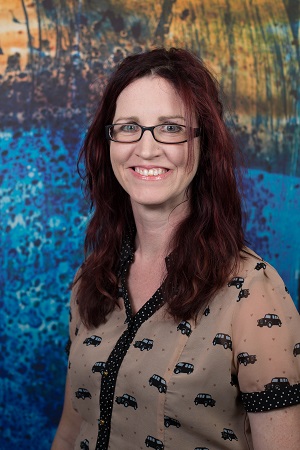ADCET Webinar: Mainstreaming Accessible Digital technologies in Higher Education
This presentation sets out the findings of a research project that explored how Curtin students with disability engage with technology, both at home and at university, and both with mainstream technology and technology designed for one or more particular disabilities.
Digital technologies are a vital part of teaching and learning in Australia. The availability of these technologies, platforms and devices increase the likelihood that students with disability will complete their degrees, but only if they are made accessible and available. Many universities’ approach to supporting students with disability requires that they seek out support from the disability office. We argue this is not a truly inclusive digital teaching and learning strategy. This presentation explores the potential for a universal approach to technological support to improve the higher education experience for students with disability as espoused by the UNCRPD. We draw upon findings from a recent project to explore in greater detail how Curtin students with disability engage with ICT, both at home and at university, and with regard to both mainstream ICT and ICT designed for one or more particular disabilities. The project was funded by Curtin’s Centre for Teaching and Learning.
Presenters

Tim Pitman is a Senior Research Fellow at Curtin University in the School of Education. He has worked in the Australian higher education sector since 1996 and his PhD in Education was completed at The University of Western Australia in 2012. His research focus is on higher education policy, with a particular focus on increasing the representation of disadvantaged students. He has researched and published widely on these and other topics. In 2020 he joins the NCSEHE as an Equity Fellow. His Fellowship will focus on how universities can best support people with disability, who come from regional, rural and remote Australia, in their higher education studies.

Katie Ellis is Professor and Director of The Centre for Culture and Technology at Curtin University. Her recent publications include The Routledge Companion to Disability and Media (2020) with Gerard Goggin and Beth Haller, Manifestos for the Future of Critical Disability Studies (2019) and Interdisciplinary Approaches to Disability: Looking Towards the Future both with Rosemarie Garland Thomson, Mike Kent and Rachel Robertson. Trauma and Disability in Mad Max: Beyond the Road Warrior’s Fury (2019) with Mick Broderick and Disability and Digital Television Cultures (219).

Mike Kent is Professor and deputy head of the school of Media Creative Arts and Social Inquiry at Curtin University. His recent publications include Disability and Social Media: Global Perspectives, with Katie Ellis, (Routledge, 2017); Chinese Social Media: Social, Cultural and Political Implications. with Katie Ellis and Jian Xu (Routledge 2018) Manifestos for the Future of Critical Disability Studies (Routledge 2019) and Interdisciplinary Approaches to Disability: Looking Towards the Future (Routledge 2019) both edited with Rosemarie Garland-Thomson, Katie Ellis and Rachel Robertson. His forthcoming books Gaming Disability: Disability Perspectives on Contemporary Video Games, with Katie Ellis and Tama Leaver, will be available again through Routledge, in 2020.

